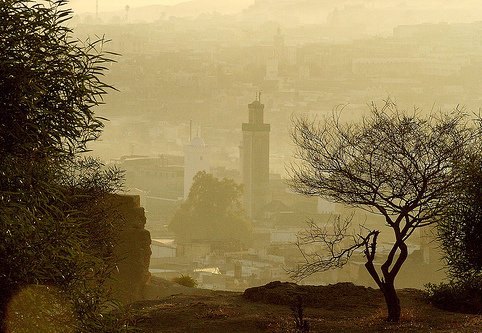
Bob Marley casts a long shadow. Most reggae influenced music from locales without a substantial Caribbean population takes its cues from roots reggae. In much of the world, it’s as if 1985’s Sleng Teng revolution never happened, with ‘reggae’ bands still playing cover songs from twenty or thirty years back.
On the flip side, there are hotspots – in Germany, corners of Africa, Yokohama, etc. – where the scene is shockingly up-to-date, contemporaneous, apace.
But that’s rare in Morocco, where ‘reggae fusion’ usually means rootsy cheese, or at least dubby cliches. So it’s refreshing to hear a Moroccan-Parisian take on UK steppas (i’ll take whatever i can get, patiently waiting for Stephen McGregor’s influence to go global) —
[audio:Gnawa_Njoum-Kami_Ni_Mantara.mp3]Gnawa Njoum Experience – Kami Ni Mantara (from Boum Ba Clash)
+ + +
and to keep the weekend calm, Dr Auratheft’s recent Gnawa mix, Moulay El Hassan Essaouira: tracklist. direct mp3 (59 MB)
